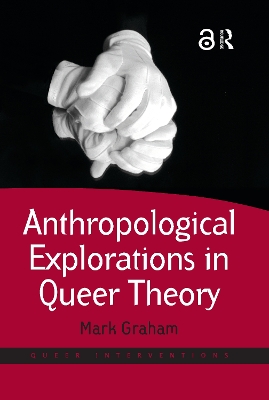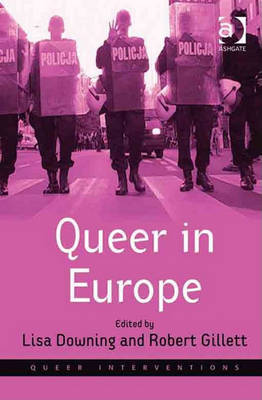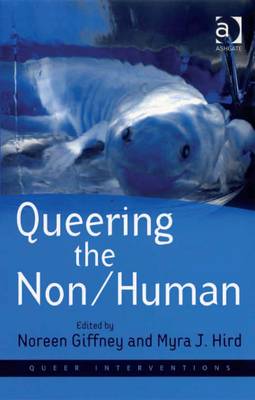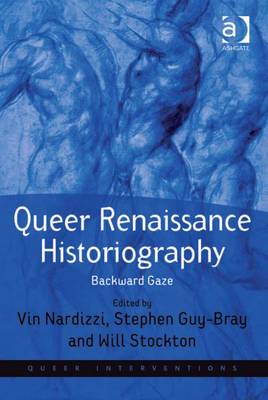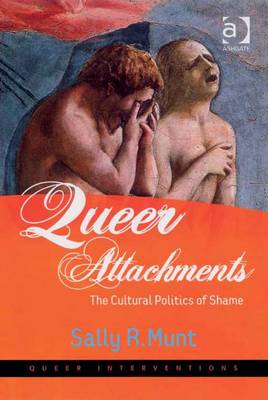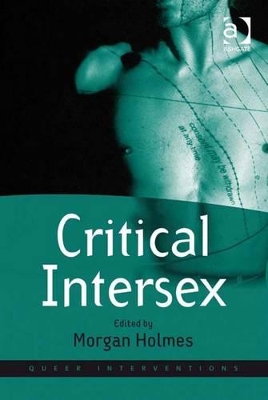Queer Interventions
6 total works
Anthropological Explorations in Queer Theory offers a wide ranging fusion of queer theory with anthropological theory, shifting away from the discussion of gender categories and identities that have often constituted a central concern of queer theory and instead exploring the queer elements of contexts in which they are not...
Read moreAnthropological Explorations in Queer Theory offers a wide ranging fusion of queer theory with anthropological theory, shifting away from the discussion of gender categories and identities that have often constituted a central concern of queer theory and instead exploring the queer elements of contexts in which they are not normally apparent. Engaging with a number of apparently 'non-sexual' topics, including embodiment and fieldwork, regimes of value, gifts and commodities, diversity discourses, biological essentialisms, intersectionality, the philosophy of Bergson and Deleuze, and the representation of heterosexuality in popular culture, this book moves to discuss central concerns of contemporary anthropology, drawing on both the latest anthropological research as well as classic theories. In broadening the field of queer anthropology and opening queer theory to a number of new themes, both empirical and theoretical, Anthropological Explorations in Queer Theory will appeal not only to anthropologists and queer theorists, but also to geographers and sociologists concerned with questions of ontology, materiality and gender and sexuality.
Queer in Europe
Queer in Europe takes stock of the intellectual and social status and treatment of queer in the New Europe of the twenty-first century, addressing the ways in which the Anglo-American term and concept 'queer' is adapted in different national contexts, where it takes on subtly different overtones, determined by...
Read moreQueer in Europe takes stock of the intellectual and social status and treatment of queer in the New Europe of the twenty-first century, addressing the ways in which the Anglo-American term and concept 'queer' is adapted in different national contexts, where it takes on subtly different overtones, determined by local political specificities and intellectual traditions. Bringing together contributions by carefully chosen experts, this book explores key aspects of queer in a range of European national contexts, namely: Belgium, Cyprus, England, France, Germany, Hungary, Ireland, Italy, The Nordic Region, The Netherlands, Poland, Russia and Spain.
Rather than prescribing a universalizing definition, the book engages with a wide spectrum of what is meant by 'queer', as each chapter negotiates the contested border between direct queer activist action based on identity categories, and more plural queer strategies that call these categories into question. The first volume in English devoted to the exploration of queer in Europe, this book makes an important intervention in contemporary queer studies.
Queering the Non/Human
What might it mean to queer the Human? By extension, how is the Human employed within queer theory? These questions invite a reconsideration of the way we think about queer theory, the category of the Human and the act of queering itself.
This interdisciplinary volume of essays gathers together...
Read moreWhat might it mean to queer the Human? By extension, how is the Human employed within queer theory? These questions invite a reconsideration of the way we think about queer theory, the category of the Human and the act of queering itself.
This interdisciplinary volume of essays gathers together essays by international pioneering scholars in queer theory, critical theory, cultural studies and science studies who have written on topics as diverse as Christ, the Antichrist, dogs, starfish, werewolves, vampires, murderous dolls, cartoons, corpses, bacteria, nanoengineering, biomesis, the incest taboo, the death drive and the 'queer' in queer theory. Contributors include Robert Azzarello, Karen Barad, Phillip A. Bernhardt-House, Jeffrey Jerome Cohen, Claire Colebrook, Noreen Giffney, Judith Halberstam, Donna J. Haraway, Eva Hayward, Myra J. Hird, Karalyn Kendall, Vicki Kirby, Alice Kuzniar, Patricia MacCormack, Robert Mills, Luciana Parisi and Erin Runions.
Queer Renaissance Historiography
Dealing with questions of the meaning of eroticism in Renaissance England and its separation from other affective relations, Queer Renaissance Historiography examines the distinctive arrangement of sexuality during this period, and the role that queer theory has played in our understanding of this arrangement. As such this book not...
Read moreDealing with questions of the meaning of eroticism in Renaissance England and its separation from other affective relations, Queer Renaissance Historiography examines the distinctive arrangement of sexuality during this period, and the role that queer theory has played in our understanding of this arrangement. As such this book not only reflects on the practice of writing a queer history of Renaissance England, but also suggests new directions for this practice.
Queer Renaissance Historiography collects original contributions from leading experts, participating in a range of critical conversations whilst prompting scholars and students alike to reconsider what we think we know about sex and sexuality in Renaissance England. Presenting ethical, political and critical analyses of Early Modern texts, this book sets the tone for future scholarship on Renaissance sexualities, making a timely intervention in theoretical and methodological debates.
Why is shame so central to our identity and to our culture? What is its role in stigmatizing subcultures such as the Irish, the queer or the underclass? Can shame be understood as a productive force?
In this lucid and passionately argued book, Sally R. Munt explores the vicissitudes...
Read moreWhy is shame so central to our identity and to our culture? What is its role in stigmatizing subcultures such as the Irish, the queer or the underclass? Can shame be understood as a productive force?
In this lucid and passionately argued book, Sally R. Munt explores the vicissitudes of shame across a range of texts, cultural milieux, historical locations and geographical spaces – from eighteenth-century Irish politics to Philip Pullman's His Dark Materials trilogy, from contemporary US academia to the aesthetics of Tracey Emin. She finds that the dynamics of shame are consistent across cultures and historical periods, and that patterns of shame are disturbingly long-lived. But she also reveals shame as an affective emotion, engendering attachments between bodies and between subjects – queer attachments. Above all, she celebrates the extraordinary human ability to turn shame into joy: the party after the fall. Queer Attachments is an interdisciplinary synthesis of cultural politics, emotions theory and narrative that challenges us to think about the queerly creative proclivities of shame.
Critical Intersex
To date, intersex studies has not received the scholarly attention it deserves as research in this area has been centred around certain key questions, scholars and geographical regions. Exploring previously neglected territories, this book broadens the scope of intersex studies, whilst adopting perspectives that turn the gaze of the...
Read moreTo date, intersex studies has not received the scholarly attention it deserves as research in this area has been centred around certain key questions, scholars and geographical regions. Exploring previously neglected territories, this book broadens the scope of intersex studies, whilst adopting perspectives that turn the gaze of the liberal, humanist, scientific outlook upon itself, in order to reconfigure debates about rights, autonomy and subjectivity, and challenges the accepted paradigms of intersex identity politics.
Presenting the latest theoretical and empirical research from an international group of experts, this is a truly interdisciplinary volume containing critical approaches from both the humanities and social sciences. With its contributions to sociology, anthropology, medicine, law, history, cultural studies, psychology and psychoanalysis, Critical Intersex will appeal to scholars and clinical practitioners alike.
